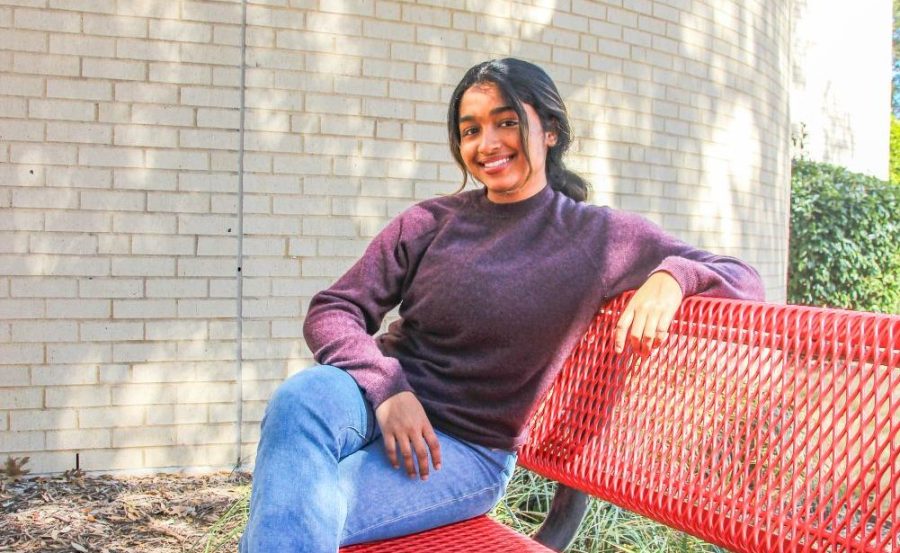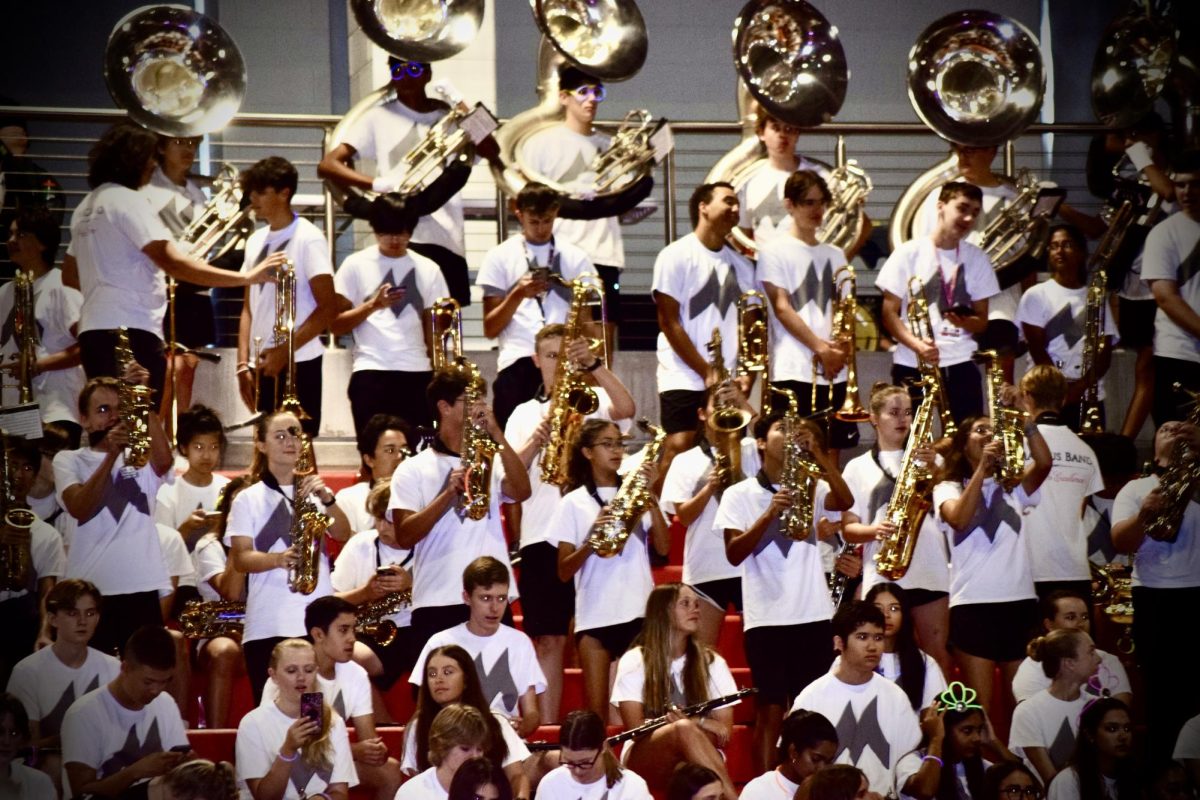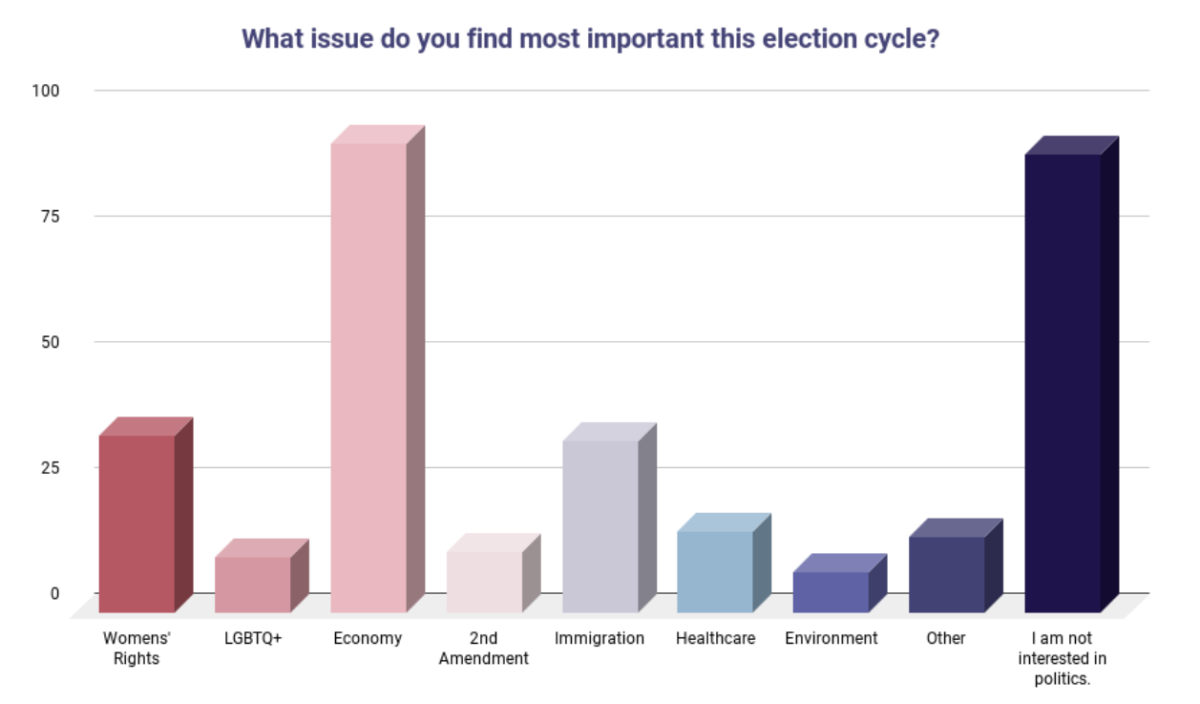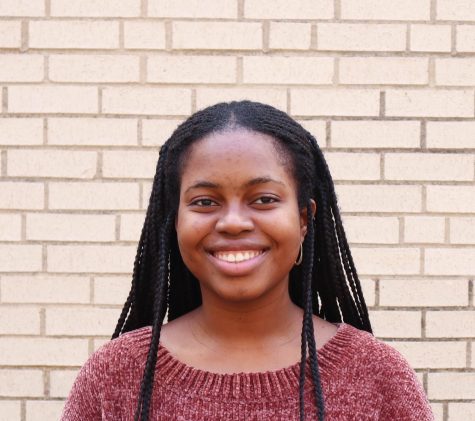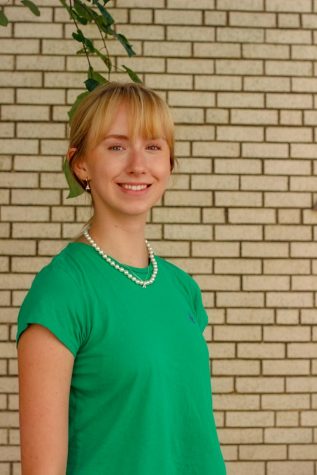When senior Rhea Karumuru sat in the counselor’s chair, fleshing out what would eventually become an outreach program, she wasn’t thinking about the entire student body — she was just thinking about her friends.
One friend told her last year that by just hearing them out in middle school, she’d helped them through a hard season. Another one approached her, thanking her for her listening skills and understanding during their freshman year.
Rhea wanted to be there for everybody she could.
“That’s what really started it,” Rhea said. “I was saying, ‘Okay, how can I provide this kind of help for as many people possible?’”
As she spoke with the future sponsor of her club, her plan was taking shape. And she was giddy with excitement.
• • •
Like most teenagers, Rhea Karumuru is no stranger to angst. She spent her freshman and sophomore years coping with an overloaded schedule. And like most teenagers, she’s witnessed her peers’ anxiety and sadness and wished she could do something about it.
But what differentiates Rhea from most is that she crossed the line between wishing and doing.
When she entered high school, she heard her friends say just by being there for them and listening to them she had really helped them.
“It really took me aback, because I didn’t think that I was doing anything special,” Rhea said. “I just wanted to be there for my friends.”
When she saw the impact that she could have, her mind burned with the possibility of what a group of kids could do for other students.
In early 2020, Rhea met with former counselor Michelle Schwolert. When she walked into the office, she had nothing but fragments of ideas. But by the end of the meeting, the two fleshed out the idea for Rel8, a before-school support group where students could talk about their mental health struggles — a place where they could speak and be heard.
“That was the idea,” Rhea said. “That everyone should have someone that they trust.”
The club launched early last year, along with its website and social medias. Meetings are every other Tuesday.
Rhea wanted this space to help address small, day-to-day stressors so that they don’t become bigger mental health issues. She feels like while there is attention directed toward problems like anxiety and depresion, there are few spaces for people to vent about problems like stressful classes or friendship troubles.
“I thought that by putting in place a system where people can talk to their own peers in a safe, non-judgemental way, we can really prevent some of these cases from getting so severe, and people really feeling alone,” Rhea said.
Last semester, there was no attendance at the meetings. Rhea feels that students have been lethargic in many aspects, including outside of school commitments.
“I feel students also shifted in a way of, ‘Okay, well, school is over,’” Rhea said. “‘Let me just get out as fast as I can.’ So it definitely has become and still is honestly an issue of maintained membership.”
However, she wants to regain last year’s attendance. She believes that Rel8 can be a good tool for students, especially after the past two years.
“Mental health everywhere…has just been bad for everyone,” Rhea said. “Whether or not this person feels like they have an issue or are getting to that extreme. And it’s nice to have people to talk to.”
Last year, each meeting began with an icebreaker. The group then discussed that week’s topic — whether it was academics, friendships, or family relationships.
Rhea picks each week’s topic and writes a list of related discussion questions. She’s usually also the first one to share.
“It’s easier when I’m the one starting,” Rhea said. “And then people go, ‘Okay, she’s kind of opening up.’”
When a student shares their problems, the group listens carefully. After they are done speaking, everyone offers potential solutions.
“It forms connections,” Rhea said. “And I think those kinds of connections are what let students feel vulnerable. Because they’re saying, ‘This person not only relates to something I’ve felt before, I also relate with them.’”
Last May, Rhea asked senior Nicole Shokry to be Rel8’s vice president. Nicole immediately accepted.
“She has a very creative mind,” Rhea said. “She has an eye to see things in a different way than people think. And it’s amazing the way her mind thinks.”
Nicole had gone to last year’s meetings, to be supportive of her friend. But she admired the space for self-expression that she had seen Rel8 provide. She knew what it was like to not have one.
• • •
When Nicole was a junior, she struggled to maintain her mental health during quarantine. When she confided in others, she was met with cliché motivators.
She knew they meant well, but she knew that being told that there was a light at the end of the tunnel wasn’t going to help her feel better.
“It felt like I was being so open with what I was saying and confident of what I was showing them,” Nicole said. “And they weren’t really paying attention.”
Nicole believes that Rel8 is a good resource for students who felt the way she did last year.
“I think our impact on mental health comes down a lot to just being… a certain outlet for people,” Nicole said. “Especially in a school setting, where a lot of people really never have that opportunity to talk.”
At one of last year’s meetings, the weekly discussion topic was school. The students talked about everything from adjusting to in-person school to maintaining friendships.
“I’m doing bad in this class — this teacher grades hard.”
“I’m not making any friends.”
“I have to go eat lunch at a table I don’t know.”
Club sponsor and student assistance counselor Hollie Wilson sits within earshot of each discussion, in case a student brings up an issue Rhea and Nicole can’t address by themselves.
Wilson says that she’s seen COVID-19 negatively impact students’ mental health, as they are being forced to undergo massive changes.
“For many students, and many teenagers, a lot left for COVID, during maybe middle school or ninth grade,” Wilson said. “So they’ve gone through a lot of transitions, even just in the school environment.”
Rhea has also seen more of her peers deal with family troubles. They express frustration about their family members, or vent about the pressure they feel from new responsibilities.
“COVID has opened up so many doors for all these issues,” Rhea said. “And now students feel like they have to fight it alone, especially when it comes to their family.”
Wilson felt the need for something like Rel8 when Rhea asked her to sponsor the club at the beginning of the year.
“The very first thing it does is normalize what people are going through,” Wilson said. “It makes it understood that this isn’t something that we need to hide, or feel embarrassed by.”
The Rel8 team hopes to combat this year’s low attendance with social media advertising and school announcements.
“I do have a big vision for this,” Rhea said. “And I really, really want to see it in action because I genuinely believe that this is a great idea.”
Rhea is looking for juniors to take over the club after she graduates, and is working to open new Rel8 chapters at Lewisville and Flower Mound High Schools. She’s also considering expanding the Rel8 website to include online mental health resources for students who can’t attend meetings.
“I guess my idea is to have this at as many schools as possible, whether it’s in Texas or not,” Rhea said.
But while she wants the Rel8 organization to outlast her high school experience, the root of Rhea’s drive is compassion. For her, college holds only more opportunities to reach others.
“I just hope that in whatever way possible, I can help somebodwy,” Rhea said. “Whether it’s one person, whether it’s many people. If I can just help that much, I know that I would have done my part.”
For now, she and Nicole offer a seat at the table to anybody who needs one.
“We’ll try to be that safe place for them,” Nicole said.





